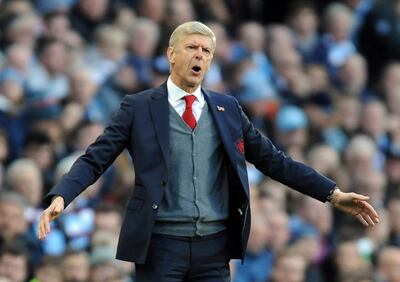When Mauricio Pochettino was an Espanyol player, he won an award as the best centre-back in the Primera Liga.
His compatriot Marcelo Bielsa then became the club’s manager and asked him to rate his performances the previous season. Pochettino, whether out of false modesty or because he is never satisfied, awarded himself seven out of 10.
Bielsa replied that, had he been the manager, his fellow Argentine would not even have been playing. He had stopped doing the things that Bielsa liked.
Pochettino produced the right response, slimming down, working harder, securing a move to Paris Saint-Germain and a place in the Argentina squad.
The tale, recounted in Guillem Balague's book Brave New World, seems to get to the heart of Pochettino's management. Like his mentor Bielsa, he improves players.
Indeed, spurred on by Pochettino, Harry Kane has halved his body fat in three years.
Pochettino’s transformative effect on his charges is a reason why he is admired so much and less reliant on the transfer market than many of his peers. Kane is a case in point: so, too, players from Christian Eriksen to Kieran Trippier, Harry Winks to Danny Rose.
His impact on Tottenham Hotspur also explains why it is fashionable to praise Pochettino. They did not record a top-three finish for 28 years. Now they have two in successive seasons.
Yet as he prepares for a derby that could cement the swing in the balance of power in north London, the overlooked, but perhaps most important element, is the way that Pochettino appears to have improved his own management.
Some of the criticisms that used to be levelled at him have been rendered outdated. Pochettino, like his players, seems a work in progress.
Tottenham’s Uefa Champions League performances are a case in point.
They underachieved last season. They have beaten Real Madrid and qualified for the last 16 already in the current campaign.
In Pochettino’s first season at White Hart Lane, Tottenham conceded more league goals than the relegated Hull City. By the end of his third year, he had halved the number in the goals against column to give Spurs the best defensive record in the division.
Pochettino generated plaudits at Southampton for the intensity of his pressing game. They swarmed around opponents at the start. They could also fade later in games or lose leads.
In one sense, the definitive Pochettino game came against Tottenham: Saints were 2-0 up after half an hour and beaten by a last-minute goal at White Hart Lane in March 2014.
His Tottenham teams finished his first two seasons in London unimpressively, as though exhausted by their earlier efforts. Spurs ended last year with 6-1 and 7-1 away wins.
They have only lost two Premier League points from a winning position in 11 months. They are probably fitter. They also seem better at managing matches, ensuring hard-earned leads are not squandered.
______________
Read more
David Ginola to Andy Mitten: 'When I look at Tottenham, I see a big club'
John McAuley: Spurs show mettle with dogged win over Crystal Palace
Sheringham to Paul Radley: Kane can outdo Neymar's record transfer fee
______________
Tottenham’s tactics have evolved. Besides high pressing, Pochettino used to be a byword for 4-2-3-1. He successfully aped Antonio Conte’s 3-4-2-1 formation last season. He has also played 3-5-2 this season.
He prospered against Madrid and Borussia Dortmund by configuring his team to sit deeper and counter-attack.
That flexibility suggests Pochettino has an inquisitive mind. A willingness to change system shows a reluctance to settle for the methods that have brought him some level of success.
A criticism of Arsene Wenger is that he can be too stuck in his ways. The same cannot be said of his opponent on Saturday.
Pochettino works famously long hours.
Perhaps it is because he is always looking to get better, forever a seven out of 10 in his own mind, searching for ways to become a 10.



